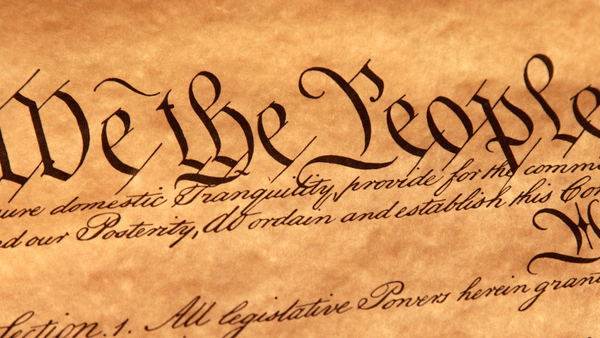Seth Lipsky Educates King’s on “The Boldness of the President”
On September 18, Seth Lipsky delivered a Constitution Day address on the “Boldness of the President” to a full audience in the City Room.

On September 18, Seth Lipsky delivered a Constitution Day address on the “Boldness of the President” to a full audience in the City Room. Every year, The King’s College commemorates the signing of the United States Constitution on September 17, 1787 by inviting a speaker to exposit one aspect of the Constitution. Lipsky is founder and editor of the New York Sun and author of The Citizen’s Constitution, An Annotated Guide. He has been described as “a legendary figure in contemporary journalism” by the Boston Globe and is husband to Amity Shlaes, a presidential scholar at The King’s College.
In the lecture, Lipsky argued that the Constitution’s principle of separated powers is today in crisis. As an instance of the powers dangerously blurring, he cited the special counsel overseeing the investigation of Russia’s role in the 2016 presidential election. “Given the enormous powers that a special counsel has, I am afraid that it could affect the boldness of the President,” Lipsky said.
Lipsky’s stance is not that presidents should be immune from scrutiny: after all, Congress has the constitutional power to impeach a president for “treason, bribery, or other high crimes and misdemeanors”[1] and the people of the United States make their judgments every four years on election day. However, the appointment of a special counsel poses a particular threat to the careful design of the Constitution.
This train of reasoning and the phrase “boldness of the President” both originate from Supreme Court Justice Antonin Scalia’s 1988 dissent in Morrison v. Olson. Lipsky explained the history behind the case and quoted the dissent at length to show how appointing an independent counsel—well meaning as it might be—would undercut the separation of powers the framers intended. The Constitution gives the President power to nominate all officers by and with the advice and consent of the Senate [2], but a special counsel acts with independent authority. The existence of this kind of office easily fuels uncontrolled investigations which cripple the President and his officers in their response to urgent matters of state. Lipsky read from a key passage from Scalia:
Perhaps the boldness of the President himself will not be affected—though I am not even sure of that. . . . But as for the President’s high-level assistants, who typically have no political base of support, it is . . . utterly unrealistic to think that they will not be intimidated by this prospect.
Lipsky applied Scalia’s argument to the Clinton investigation ten years later, suggesting that the independent counsel investigations were in part to blame for an ineffective response to events that could have foreshadowed the September 11, 2001 Al-Quaida attacks. “Once an independent prosecutor is on the prowl, he has the capacity to paralyze the whole administration of government,” Lipsky said. “The boldness of the President had been lost. And the man left in charge was not up to the task.”
President Gregory Alan Thornbury opened the question and answer period by asking if independent or special counsels have emerged because the people no longer trust Congress to hold an executive officer accountable. Lipsky agreed, marking the Vietnam War as a catalyst for this loss of trust. Other questions from a student and faculty member prompted Lipsky to share several ideas for improving upon the Constitution that have been recently circulating, such as a convention of states to amend the Constitution and an interstate compact where states agree to popular elections instead of the Electoral College. These proposals raise other concerns, Lipsky said, but are all part of the continuing pursuit of a “more perfect union.”
Dr. David Innes, chair of the program in Politics, Philosophy, and Economics, said, “When most people no longer understand the principles of our government—in this case the separation of powers—and those who govern us are happy to ignore them, the blessings of good government slip away and we are all the more grateful for someone of Seth Lipsky’s insight to address us on Constitution Day.”
[1] Article II, 4.
[2] Article II, 2, cl. 2.




